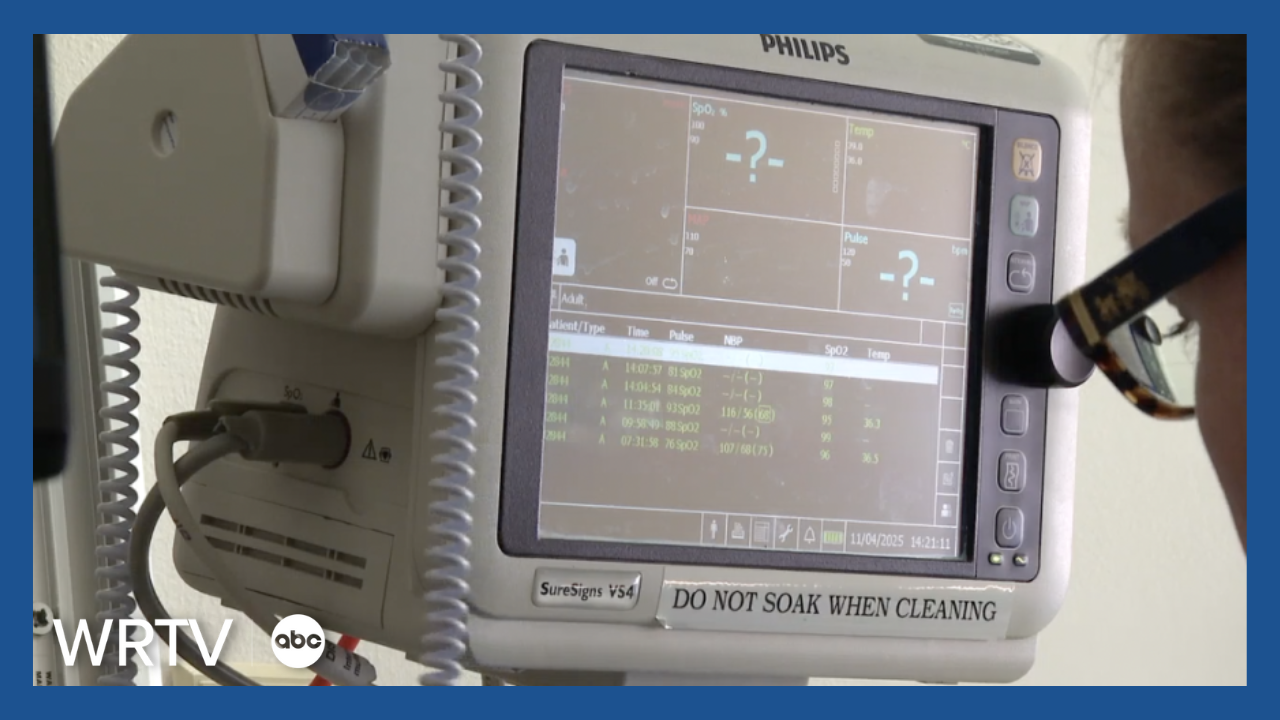INDIANAPOLIS — Cara Hopkins is preparing a patient for a breathing treatment.
“Okay, hun, I’m going to listen to your breath sounds real quick, okay?” she said.
Hopkins is a respiratory therapy assistant at IU Health University Hospital, a role she went back to school for 15 months ago.

“It was scary at first. I had to relearn how to study, how to do school. We have two kids,” she said.
Her inspiration came after her husband underwent a double-lung transplant in 2023.
“About a week after his transplant, he ended up in rejection. He spent a very long time on ECMO, he had a trach, he was on the ventilator, he ended up having to do feeding tubes, all of the things,” she said.

The care he received from his respiratory therapists sparked something in her.
“I like to see what everything is about, so I ask a lot of questions. They answered, they taught me, they showed me how the equipment worked, they showed me what they were doing with everything. It just kind of sparked an interest,” Hopkins said.
That kind of curiosity is needed. The National Board of Respiratory Care estimates nearly 100,000 therapists will leave the profession by the end of the decade.
“I can tell you from my roll-outs perspective, I have about 400 respiratory therapists and we had lost 70 post-pandemic, which is a pretty significant loss,” said Beth Summitt, the executive director of respiratory care services at IU Health.
Now, she says staffing levels are improving.
“We’re looking at somewhere between 30 to 40 therapist vacancies, which we could very likely fill in the next year, so that’s very exciting,” she said.
But she notes there still aren’t enough people entering training programs.

“We’re not filling all our seats for respiratory therapists in the state,” Summitt said.
As president-elect of the Indiana Society for Respiratory Care, Summitt said the organization is partnering with high schools to introduce more students to the field.
“Last year, we made contact with over 30,000 students in the state, and we’re expected to do better than that this year,” she said.
Respiratory therapy remains one of the fastest-growing health-care professions.
“We’re expected to grow 30% in the next five to 10 years,” Summitt said.
For Hopkins, the work is personal and a way to pay forward the support her family once received.
“They picked me up when I needed a pick-me-up, so it’s kind of going in and trying to pay that back,” she said.





